Traveling through a wormhole in Monemvasia, Greece,
gave me a chance to see, hear, taste, smell, and touch a bit of the past.
A wormhole is a hypothetical tunnel that allegedly connects the past to the present. The argument that wormholes exist comes from Einstein’s theory of relativity. You can visualize a wormhole if you fold a piece of paper in half and make a pinhole in the center of the folded paper. That hole is a wormhole, connecting both sides of the paper. Scientists believe that wormholes exist and they make traveling through space and time a real thing.
My wormhole transported me to the past - 300 years ago - in Monemvasia, Greece. While there, I got to see, hear, taste, smell and touch the past. And it was pretty cool.
The entrance to the wormhole was at the Lazareto Hotel.
The Lazareto sits at the base of Monemvasia town, a town that is carved into a giant and lonely rock known as the Gibralter of Greece. We arrived at the base of the great rock after a day of bike-riding through the Peloponnese.
The rock and the town sat on an isolated island, originally inhabited by the people of Sparta, until 1971 when a causeway was built to connect the island to the mainland.
Lazareto means quarantine. Built in the 1700s, the Lazareto was designed to guarantine mariners arriving from Venice and other parts of the Mediterranean so that any diseases they brought wouldn’t spread to the local Montevasians.
The Lazareto hasn’t changed much in its 300-year history. It’s a stone structure sitting on a narrow strip of land, surrounded by the Myrtoan Sea, part of the Mediterranean. The rooms at the hotel are simple; the walls are stone; small windows open on the sea and let that salty air in. There is electric light. But not much.
You can’t see the town from the hotel: the town’s entrance sits high up and faces the sea. It’s walled, very steep, with cobblestone pathways and mysterious archways and open plazas with churches looking out. The only way in is by foot.
The town itself was built in the 500s – that’s the 6th century – and has been continually occupied ever since. That’s quite a history!
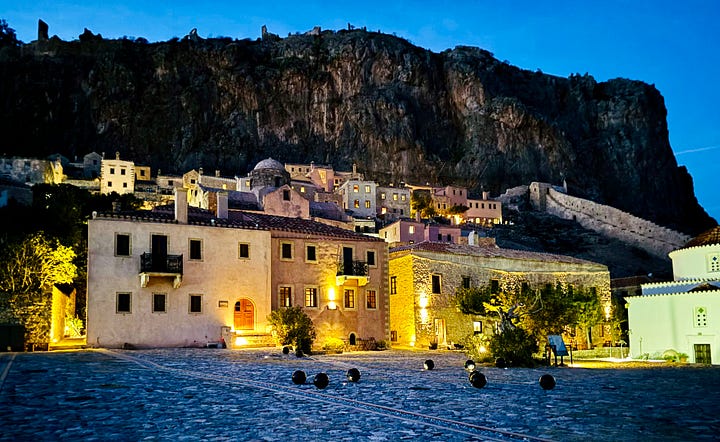
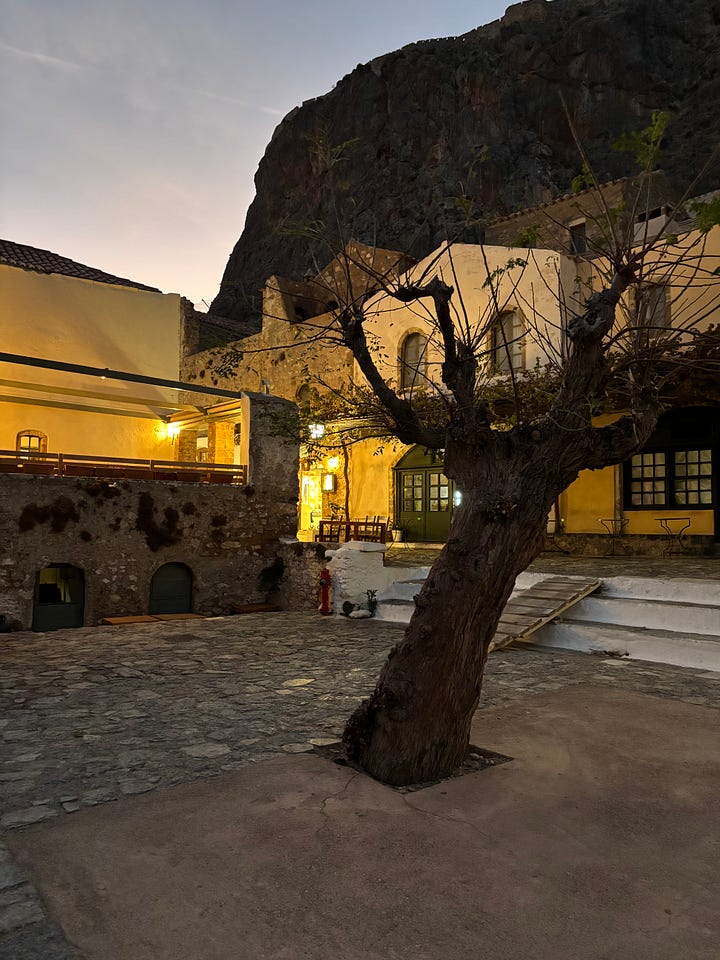
Food opens the door to the wormhole!
In the town itself, a small group of women has been exploring the past though food. They forage for the old recipes, trying to preserve the ancient methods of cooking.
Food is their wormhole.
They find – or grow - the original ingredients and make meals like women did hundreds of years ago. They are literally serving up history at the table. Here’s what they made for our group:
A salad, made from local wild and bitter greens, marinated in salt and vinegar for a week and then olive oil. Wild greens and olive oil have been eaten in Greece since ancient times. Which ones are eatable is information passed down from generation to generation.
Another version of those greens: surrounded by homemade filo, baked on hot stones – the long-ago version of spanokopedia.
Lavross, a sardine-like fish cooked (i.e., marinated) in sea salt for 2 days, then put into vinegar for two days.
Goat’s milk cheese, fermented inside goat’s hide, and put away in a cellar for 6 months.
Chicken (available in Greece starting in 600 BC) marinated in oil, fruit juice, wine and honey for two days. The chicken goes inside clay pots, along with raisons and figs and nuts, and cooked in olive oil. Wine has been commercially available in Greece since the Minoans, who were around 3000 years BC.
The flavors of these ancient foods are deep and musty and tangy and a little sweet. The tastes of the natural preservatives - vinegar and salt and sheep’s hide and wine – come through. It’s simple. Yet complex. It lacks the freshness of a traditional (and ever present) Greek salad or the crispy crunch/smooshy insides of fried zucchini balls or the ever-present fried potatoes we ate all over Greece.
But sitting in that ancient, dark room, tasting and smelling and seeing the food from so long ago put us on the other side of the that wormhole.
And then costumed musicians, with ancient instruments, started to play old melodies.
At that point, we all just disappeared down that wormhole for the next hour or so.
How does visiting the past affect the present?
The question, when time-traveling to the past, is always how your presence there affects your future. In academic circles this is known as the grandfather paradox. If you time-travel to the past, and, for example, kill your grandfather before he has children, which is theoretically possible, it presents an existential question: how can you even exist? It’s a paradox used to argue against the possibility of time travel.
But metaphysics aside, I cling to my memory of that wormhole and how the place and the food and the people and the music came together to transport my 21st century self to another place in time. There’s something about actually experiencing the past, for even a moment, that exposes the connective tissue that makes us a community. And, of course, food, as always, is the catalyst.
Have you had any time-traveling experiences? Please share!
Love reading about food experiences here, there and everywhere. Well, then, it’s easy. Just subscribe! For you, it’s free.


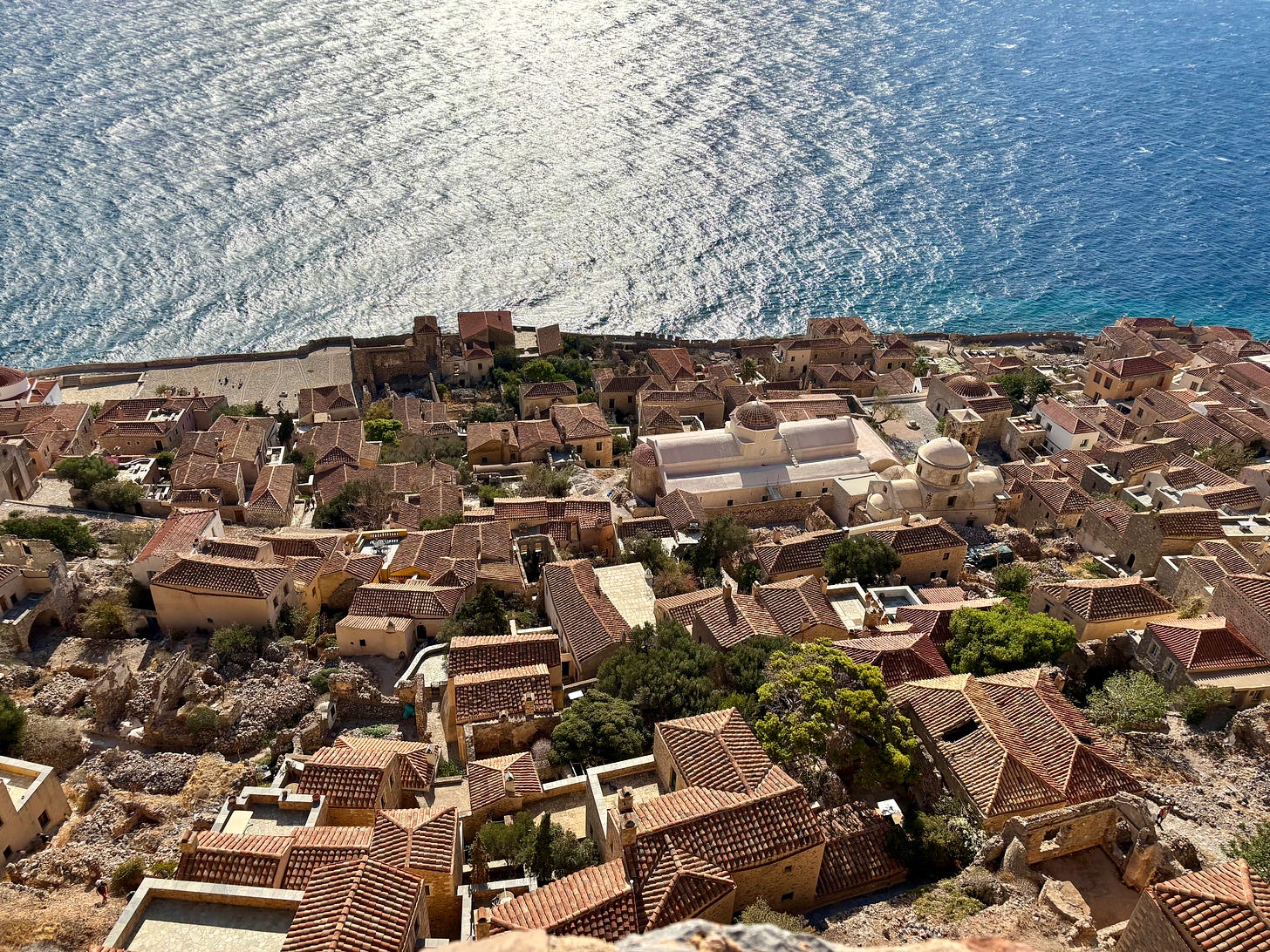
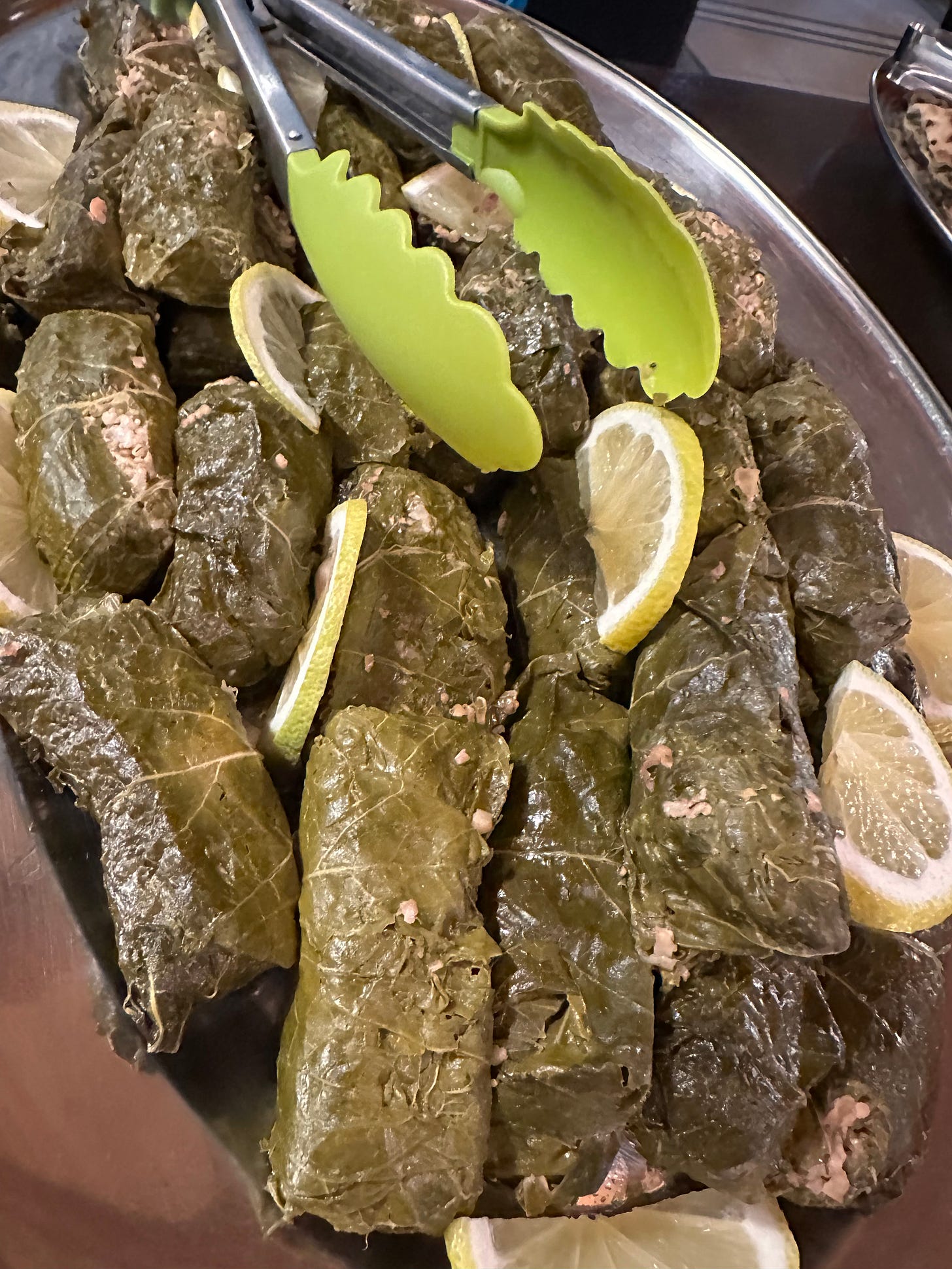

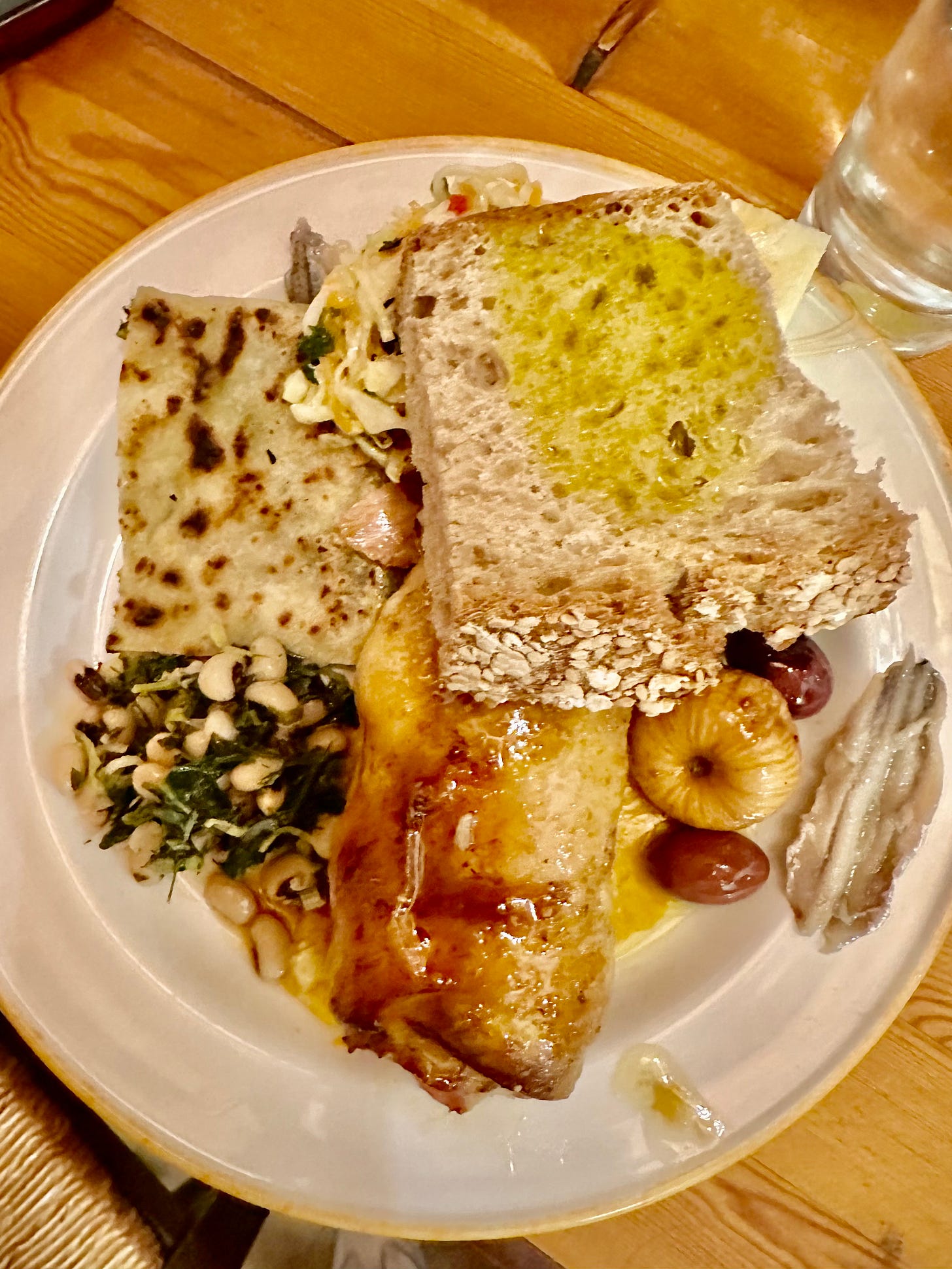
A tasty trip, rich with history. Lovely, Anne.
That is incredibly interesting! Thank you for sharing that part of your travels. Looks fabulous.